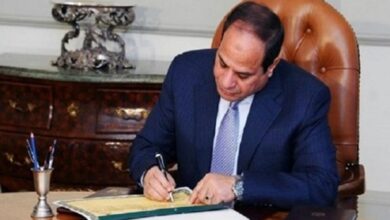
Portuguese President Anibal Cavaco Silva, who once noted that in his job silence was worth its weight in gold, faces what could be his toughest task as he tries to resolve a political crisis.
The country is now hanging on every word of the 76-year-old professor of public finance, because it is up to him to decide what happens next after the confusion created by last month's inconclusive elections.
Cavaco Silva will be confronted with an unprecedented situation next week when leftist parties are set to use their parliamentary advantage to topple the minority government of pro-austerity allies which he reappointed after the October 4 vote.
Cavaco Silva's stiff, awkward way of talking has earned him a reputation for inflexibility. But those close to him say that is just part of his determination to go by the book, a resolve that he will not easily abandon in what will likely be the last big decision of his career.
"He is very institutional, he only says things at the right time and place," said a source who has worked with the president for many years. "Often, people don't understand that."
Last month's vote saw Prime Minister Pedro Passos Coelho's center-right government come first but lose its majority, as many voters gave the thumbs-down to the harsh austerity which he has imposed on the country in return for an international bail-out.
Yet Cavaco Silva chose to re-name Passos Coelho as premier, arguing that the precedent established since Portugal shrugged off dictatorship in 1974 gave him the right to try to forma government.
He shunned the claims of the left to power by arguing the mainstream Socialists could only secure a majority by turning to hard-left political allies he attacked for their Eurosceptic stances.
"Never has a Portuguese government depended on the support of anti-European political forces," he said in a stab at the Communists and Left Bloc, which have in the past advocated leaving the euro.
But that stance will be put to the test next week when Passos Coelho stands to lose a vote in parliament on his government program, which is likely to happen on Tuesday or Wednesday.
The prime minister would then lose his job. Such a government collapse would be the first since 1978 and would put Cavaco Silva in a quandary as the constitution does not clearly say what happens next.
Normally, Cavaco Silva could dissolve parliament and call new elections – an option he has called the "atomic bomb" for its power to encourage rival factions to seek compromise. But the timing of a separate presidential vote in January means he is constitutionally barred from doing so.
That leaves Cavaco Silva either with the choice of inviting Socialist leader Antonio Costa to form a government or keeping Passos Coelho's government in a caretaker capacity until new elections can be held in June.
If he stands by his criticism of the hard left, it is difficult to see him putting a government including the Communists and Left Bloc in power.
But any center-right government with caretaker status would be a "lame duck" administration that would just pay bills and struggle to pursue the reforms and encourage the investment which Portugal needs to pursue its tentative economic recovery.
Self-made man of Portugese politics
On paper, Cavaco Silva's credentials to resolve such a crisis are second to none.
Born into the family of a gas station owner of modest income in the Algarve, Cavaco Silva is seen as the self-made man of Portuguese politics. He is Portugal's longest-serving prime minister for his stint between 1985 and 1995, and has attended no fewer than 28 EU summits.
Despite such experience, his political judgment has been less than perfect in the past.
During the sovereign debt crisis in 2012 he angered low-income pensioners with a comment that his two pensions combined – worth over 10,000 euros a month – would not be enough to pay his expenses. Several hundred pensioners marched on his palace to give him a bag of coins to ease his plight.
The key issue for Cavaco Silva may be whether any leftist government would stand by Portugal's commitments to European budget rules, which form a part of foreign policy, an area in which the president has some constitutional powers.
"At this moment, the most plausible is that the president will appoint a government led by (Socialist leader Antonio) Costa, working on the assumption that there is agreement on the left," said Manual Braga da Cruz, politics professor at the Catholic University where Cavaco Silva once worked.
"But the situation is fluid, unstable and could evolve," he said of talks between the leftists which have still not managed to secure the basis for a coalition agreement.
The source who has worked with Cavaco Silva said he is not arrogant, and listens. "Even if he initially has a different opinion, he always thinks about what he is told," he said.
But whatever Cavaco Silva ultimately decides, the fact that he will be out of office early next year means it will likely be up to his successor to deal with the consequences.




